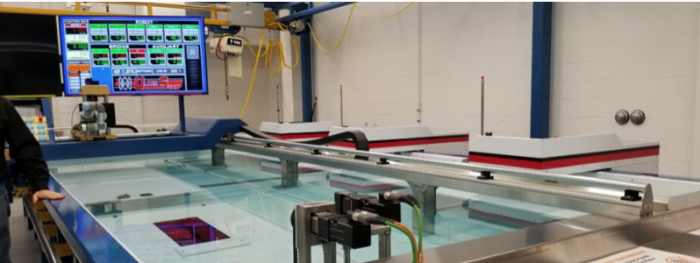Non-Destructive Testing Specialist – Median Salary: $56,896

Whether driving a car or boarding a plane, the strength or structural integrity of the parts holding everything together is imperative for the safety of all involved. Non-Destructive Testing (NDT) Technicians inspect, test, and evaluate materials, components, or assemblies for flaws or differences in characteristics that may lead to failures. They play a critical role in ensuring our transportation, bridges, buildings, and infrastructure are sound and help to prevent accidents- potentially saving lives.
Skills
- Quality Control/Assurance
- Machine/Hand Tools
- Detail-oriented
- Communication
- Computer/Technology
Job Titles
- NDT Technician
- NDT Level I, II, III
- Penetrant Inspector Level I, II, III
- Radiographer/X-Ray
- Quality Control/Inspector
Primary Tasks:
- Interpret or evaluate test results in accordance with applicable codes, standards, specifications, or procedures.
- Interpret the results of all methods of non-destructive testing (NDT), such as acoustic emission, electromagnetic, leak, liquid penetrant, magnetic particle, neutron radiographic, radiographic, thermal or infrared, ultrasonic, vibration analysis, and visual testing.
- Select, calibrate, or operate equipment used in the non-destructive testing (NDT) of materials.
- Identify defects in solid materials using ultrasonic testing techniques.

Training
Training in Non-Destructive Testing & Evaluation is available locally at Linn-Benton Community College. Industries that employ NDT technicians include: Aerospace, Construction & infrastructure, Manufacturing, transportation, petrochemical, and power generation. The job outlook for NDT Technicians is good, with local career opportunities at companies throughout the Mid-Valley.
High School/College Courses:
- Mathematics (Algebra I, II, Geometry, and Trigonometry)
- Industrial Arts
- Drafting/CAD
- Welding
LBCC’s Non-Destructive Testing & Evaluation Program
LBCC’s Non-Destructive Testing & Evaluation Program works closely with local employers to ensure that the program curriculum is relevant to the needs of local industry.
Students get hands-on training with state-of-the-art equipment including ultrasonic phase array 3D imaging, radiography, penetrating dyes, magnetic particle inspection, and visual inspection to find surface and sub-surface flaws and anomalies.
Graduates of this program will be Level I certified in accordance with the American Society for Nondestructive Testing standards, the world’s largest technical society for nondestructive testing professionals. Opportunities exist for NDT technicians who want to move up in the industry to a Level II or III technician.
Learn more at www.linnbenton.edu/ndt.
Contact:
Linn Benton Community College
6500 Pacific Blvd. SW, Albany, Oregon 97321
541-917-4999
admissions@linnbenton.edu
www.linnbenton.edu
To apply to LBCC, visit:
https://www.linnbenton.edu/futures-start-here/index.php
Links for more information:
- Labor Market Information: www.qualityinfo.org
- State of Oregon Apprenticeship & Training Division: www.oregon.gov/BOLI/ATD/pages/index.aspx
- Women in Trades: www.tradeswomen.net
- Build Oregon: www.build-oregon.com
- American Society for Nondestructive Testing: www.asnt.org
- Discover NDT (The American Society For Nondestructive Testing)
